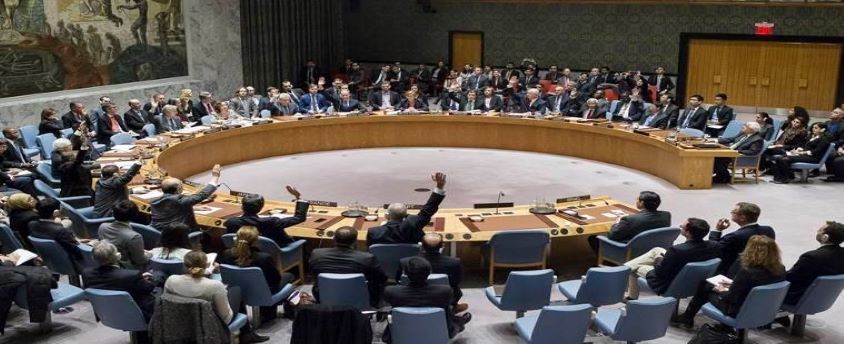UNSC’s sanctions committee blacklists LeT’s Makki
14, Jan 2023

Prelims level : International Institutions – Summits, Working, Organisations
Mains level : GS-II Effect of policies and politics of developed and developing countries on India’s interests, Indian diaspora.
Why in News?
- The ISIL and Al Qaida Sanctions Committee of the U.N. Security Council (UNSC) has placed Abdul Rehman Makki, a fundraiser and key planner of the Pakistan-based terrorist outfit Lashkar-e-Taiba (LeT), on its sanctions list.
What is United Nation Security Council?
- The UNs Charter established six main organs of the UN, including the UNSC. Article 23 of the UN Charter concerns the composition of the UNSC.
- The other 5 organs of the UN are—the General Assembly, the Trusteeship Council, the Economic and Social Council, the International Court of Justice, and the Secretariat.
- The UNSC has been given primary responsibility for maintaining international peace and security and may meet whenever peace is threatened.
- Headquarter: The council is headquartered at NewYork.
- The UNSC is composed of 15 members, 5 permanent and 10 non-permanent.
- Five Permanent Members: China, France, the Russian Federation, the United Kingdom, and the United States.
- Ten Non-Permanent Members: Elected for two-year terms by the General Assembly.
- India, for the eighth time, has entered the UNSC as a non-permanent member last year (2021) and will stay on the council for two years i.e 2021-22.
- Each year, the General Assembly elects five non-permanent members (out of ten in total) for a two-year term. The ten non-permanent seats are distributed on a regional basis.
What is UNSC 1267 committee?
- It was first set up in 1999, and strengthened after the September, 2001 attacks. It is now known as the Da’esh and Al Qaeda Sanctions Committee.
- It comprises all permanent and non-permanent members of the United Nations Security Council (UNSC).
- The 1267 list of terrorists is a global list, with a UNSC stamp. It is full of Pakistani nationals and residents.
- It is one of the most important and active UN subsidiary bodies working on efforts to combat terrorism, particularly in relation to Al Qaeda and the Islamic State group.
- It discusses UN efforts to limit the movement of terrorists, especially those related to travel bans, the freezing of assets and arms embargoes for terrorism.
- India has made at least three attempts in the last decade — in 2009, 2016 and 2017 — to list JeM chief as “global terrorist”. All attempts have been blocked by China at Pakistan’s behest.
Procedure of Listing:
- Any member state can submit a proposal for listing an individual, group, or entity.
- The proposal must include acts or activities indicating the proposed individual/group/entity had participated “in the financing, planning, facilitating, preparing, or perpetrating of acts or activities” linked to “ISIL (Da’esh), Al-Qaida or any cell, affiliate, splinter group or derivative thereof”.
- Decisions on listing and de-listing are adopted by consensus. The proposal is sent to all the members, and if no member objects within five working days, the proposal is adopted.
- An “objection” means curtains for the proposal.
- Any member of the Committee may also put a “technical hold” on the proposal and ask for more information from the proposing member state. During this time, other members may also place their own holds.
- The matter remains on the “pending” list of the Committee until such time as the member state that has placed the hold decides to turn its decision into an “objection”, or until all those who have placed holds remove them within a timeframe laid down by the Committee.
- Pending issues must be resolved in six months, but the member state that has placed the hold may ask for an additional three months. At the end of this period, if an objection is not placed, the matter is considered approved.






